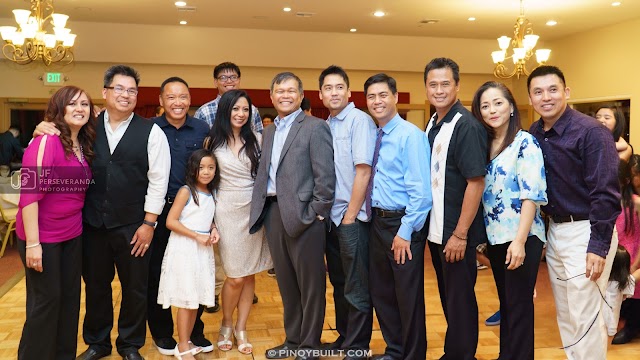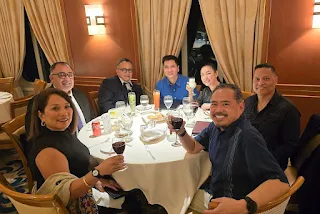The Four Waves of Migration by H. Otley Beyer
Henry Otley Beyer, an American anthropologist and ethnologist, is known as the "Father of Philippine Anthropology." He proposed a now-famous theory that the Philippines was populated through four successive waves of migration. While modern archaeology and genetics have challenged this model, it remains widely taught and discussed in Philippine history.
🌊 First Wave: Dawn Man (~250,000 years ago)
This refers to a prehistoric hominid, similar to Java Man or Peking Man (Homo erectus), believed to have lived in parts of the Philippines. Fossil evidence is scarce, and much of it remains debated.
🌳 Second Wave: Negritos (25,000–30,000 years ago)
The Negritos, small-statured hunter-gatherers, are believed to have arrived via land bridges during the Ice Age. They used simple tools and settled in forested areas. Some groups like the Aeta and Agta are descendants of this wave.
⛵ Third Wave: Indonesian Seafarers (5,000–6,000 years ago)
These migrants came using advanced sea vessels. They brought more refined tools and settled along coastlines and river valleys. Two types are sometimes mentioned: Type A (tall and light-skinned) and Type B (shorter and darker).
🏺 Fourth Wave: Malays (~3,000 years ago)
The Malays came from the Malaysian peninsula and parts of Indonesia. They introduced iron tools, pottery, weaving, agriculture, and formed the cultural backbone of pre-colonial Filipino societies.
📉 Criticisms of the Theory
Beyer's model has been challenged for its lack of archaeological support and oversimplified view of cultural development. Modern scholars now favor the Out-of-Taiwan Hypothesis, which traces Filipino ancestry to Austronesian-speaking peoples who migrated from Taiwan around 3000–2500 BCE.
📚 Sources and Readings
- Models of Migration to the Philippines - Wikipedia
- History Learning - Wave Migration Theory
- Scribd - Wave Migration Summary
- The LaSallian - Human Migration to the Philippines
- Indiana University - The Peopling of the Philippines (PDF)
🧭 Summary Table
| Wave | Approx. Date | Group | Mode of Arrival | Contributions |
|---|---|---|---|---|
| 1 | ~250,000 years ago | "Dawn Man" (Homo erectus) | Land | Stone tools |
| 2 | 25,000–30,000 years ago | Negritos | Land bridges | Hunting, forest dwelling |
| 3 | 5,000–6,000 years ago | Indonesian Seafarers | By boat | Farming, tools |
| 4 | ~3,000 years ago | Malays | By boat | Iron, agriculture, language |
Today, many Filipino students still learn Beyer’s model in school as a foundation for discussing early migration, though newer evidence continues to reshape our understanding of Filipino origins.
📣 Calling All Filipino-Americans 🇵🇭
Whether you're a first-generation immigrant who journeyed here from the Philippines, a second-generation Filipino-American born and raised in the U.S., or like me—a 1.5‑generation Filipino—you belong here. PinoyBuilt is a space for all of us to celebrate our roots, share our stories, and build community.
🌟 Words That Inspire
“I’m Olivia Rodrigo. I’m a Filipina, I’m a lumpia fan, I’m a daughter, a granddaughter and a great‑granddaughter.”
“I wanna say proud Pinoy ako, my Tagalog isn't so good, but I'm working on it.” — Olivia Rodrigo
🤝 Join the Conversation 🇵🇭🇺🇸
Here at PinoyBuilt, we draw strength from our shared heritage—no matter which “generation” we are. Share your traditions, recipes, language-learning journey, or just your day-to-day experiences. Let’s uplift each other and keep our Filipino spirit thriving across generations.
Sharing is easy:
✉️ Email your story and/or photo to info@pinoybuilt.com
📱 Write from your phone or desktop
🤖 Use tools like ChatGPT to help shape your story!
🌐 Or submit at pinoybuilt.com/p/share-your-story.html
📲 Follow & Tag Us:
💬 Instagram: @PinoyBuilt🧵 Threads: @PinoyBuilt
👍 Facebook: @PinoyBuilt
🐦 Twitter/X: @PinoyBuilt
▶️ YouTube: @PinoyBuilt
🌐 Website: PinoyBuilt.com





















0 Comments
Hi! Thank you for dropping by. Please leave us a comment.